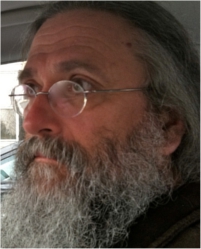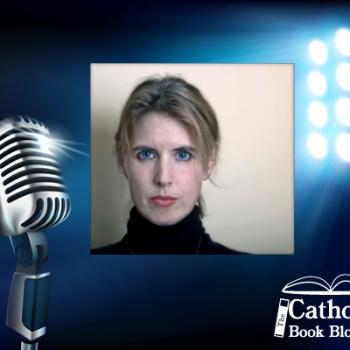 PETE: As the titles suggest, your books on Pope John XXIII and Pope John Paul II are short but packed with great info on the lives of these two inspiring men. Can you give us some idea of what it took to write these “short” biographies?
PETE: As the titles suggest, your books on Pope John XXIII and Pope John Paul II are short but packed with great info on the lives of these two inspiring men. Can you give us some idea of what it took to write these “short” biographies?
KERRY WALTERS: In some ways, writing “long” biographies of the two popes would’ve been easier. The aim of the two books is to offer readers concise but informative and entertaining—and hopefully inspiring—portraits of the two most influential pontiffs of the twentieth century. Both of them, especially John Paul II, left behind an extensive body of written work; both enjoyed long and eventful lives. So the challenge in writing the books was to reduce the mountain of primary and secondary material to readable biographies without distorting—any more than biographies inevitably do—the public and private lives of these two men. Both of the books include extensive notes and bibliographies for readers who may want to explore further.
PETE: John XXIII gave us the gift of Vatican II, whose effects are still felt to this day. How significant was it that he was the one who ultimately convened this event?
KERRY WALTERS: Very significant, for at least two reasons. In the first place, John XXIII had been elected as a kind of stopgap pope. He was just shy of his 78th birthday, and the feeling in the College of Cardinals was that he would be a safely manageable pontiff. This was especially agreeable with the more conservative members of the Curia such as Cardinal Alfredo Ottaviani, head of the Congregation for the Doctrine of the Faith. (Throughout the entire Council, Ottaviani wound up fighting the reforms every step of the way.) But within weeks of his ascendency to the throne of Peter, John XXIII announced his intention to call a great council to reform the Church. Had this been known beforehand, he never would’ve been elected pope.
In the second place, it’s doubtful that a man of a different temperament than John’s could’ve gotten the Council off to the right start. He had years of experience, from his time in the Vatican diplomatic corps, of bringing people together to work collaboratively, and he used those skills to great effect in inspiring the Council delegates to embrace his reformist spirit and vision. As a man of great humility, John also declined to throw his pontifical weight around. He trusted the Holy Spirit and the good sense of the delegates to go in the right direction. A pope with a more forceful temperament might have tried to micromanage the Council, thereby defeating its purpose. John had the good sense to avoid this.
PETE: Neither John XXIII and John Paul II were not on anyone’s radar to come out of their respective conclaves as Pope. What are your thoughts on this?
KERRY WALTERS: Some papal elections are predictable. John XXIII virtually handpicked his successor, Cardinal Montini, who took the name of Paul VI. Although John Paul II didn’t, so far as we know, designate Cardinal Ratzinger as his successor, his election to the papacy following John Paul’s death was really no surprise. But some elections are surprising. In the twentieth century, the two biggest surprises were John XXIII and John Paul II. John had never been considered especially talented by his superiors, and John Paul (from the perspective of the Italian dominated Curia) was an obscure bishop from a backwater country. That each eventually became pope and subsequently surprised the world with the energetic way he shepherded the Church is a fascinating chapter in twentieth-century history.
PETE: Do you have any plans for more papal short biographies and what other projects can you share with us?
KERRY WALTERS: The two short biographies are actually in a series on saints, not popes. It’s just that the canonization of not one but two popes was too important an event to pass by. My editor at Franciscan Media and I have discussed future possible volumes in the series, ranging from the recently canonized Jesuit Peter Faber to better known saints such as Mother Teresa and Padre Pio. But no decisions have been made yet.
My next book will be released in August by Rowman & Littlefield. It’s entitled Profiles in Christian Courage: Extraordinary Inspiration for Everyday Life. In it, I explore what physical, moral, and spiritual courage means for Christians, arguing (in a riff on a famous expression by Ernest Hemingway), that it’s best understood as “Grace under pressure,” with the emphasis on “Grace.” I offer biographies of eighteen modern Christians who have displayed remarkable courage when confronted with challenges. Some of them are well known—for example, C.S. Lewis and Henri Nouwen—while others are less so—Dorothy Stang and Thea Bowen.
PETE: Time for my signature ending question. This is a blog about books. What’s currently on your bookshelf to read?
KERRY WALTERS: I just finished reading James Martin’s Jesus: A Pilgrimage, and can’t recommend it highly enough. It’s a wonderful blend of memoir, exegesis, and devotional writing. At the moment, I’m reading Gerhard Lohfink’s incredible collection of essays, No Irrelevant Jesus: On Jesus and the Church Today. Every so often I run across a book whose originality knocks my socks off, and Lohfink’s book totally fits that bill. During this year’s Lenten season, I also made a point of diving back into the verse of my three favorite poets: Gerard Manley Hopkins, R.S. Thomas, and Jessica Powers. Doing so only reinforced my conviction that the best theologians are poets—and the best poets, theologians.
_____________________________________________________________________________________________
You can read my review of the books John XXIII (a short biography) and John Paul II (a short biography) here.











